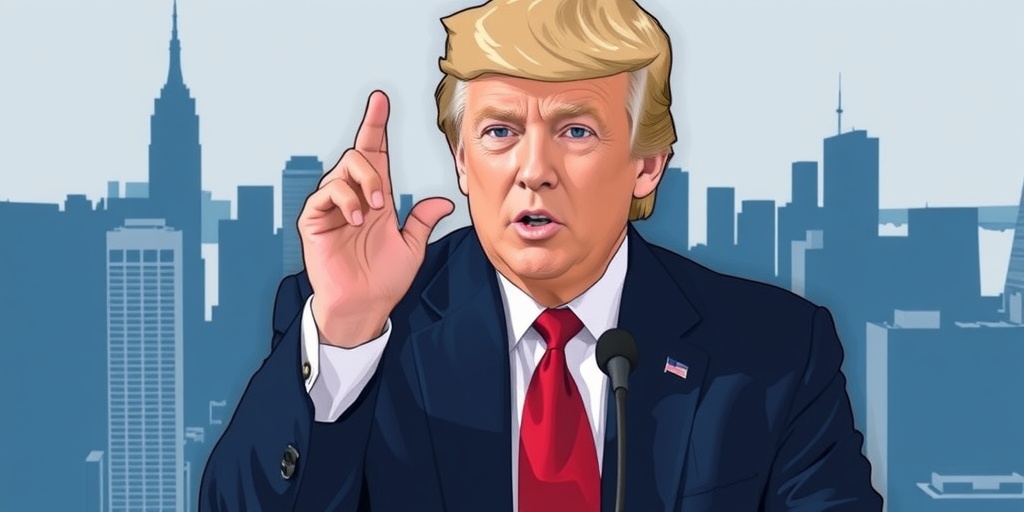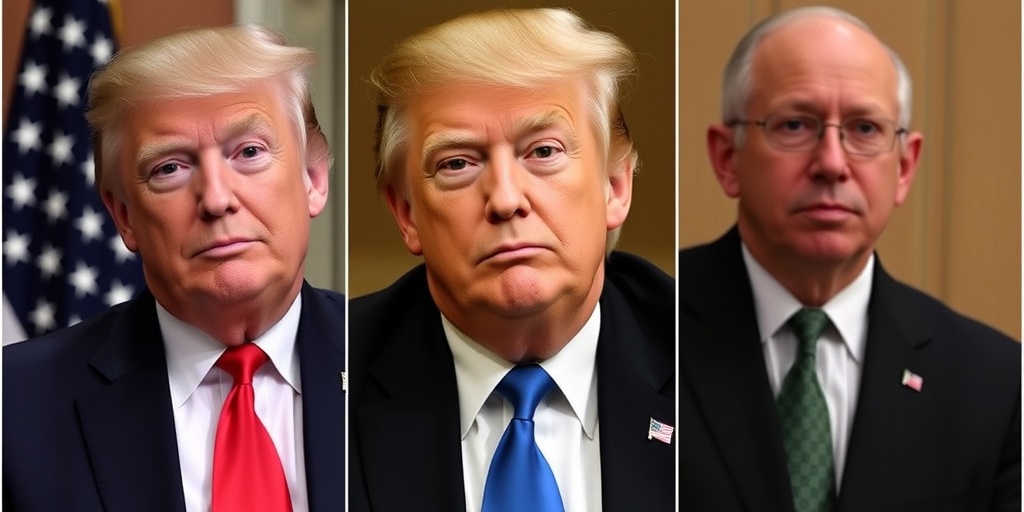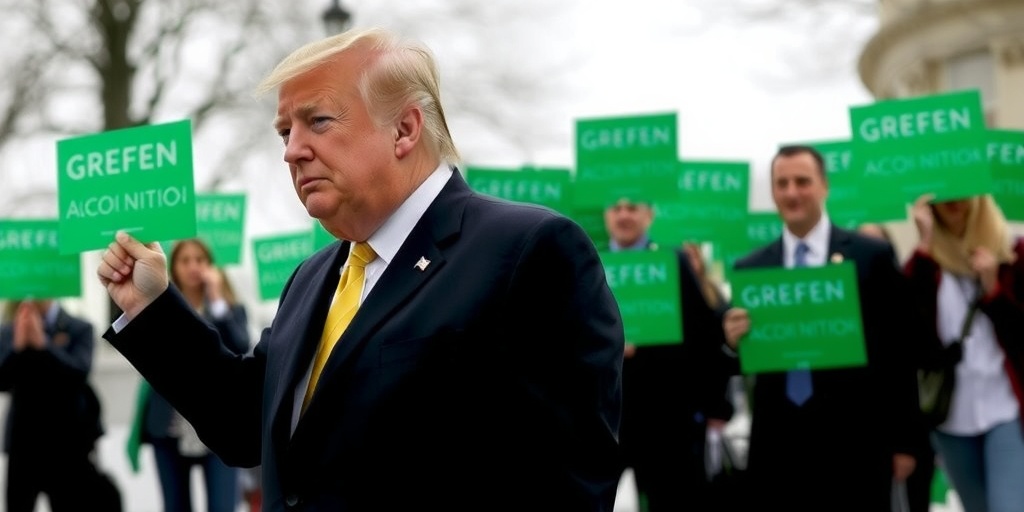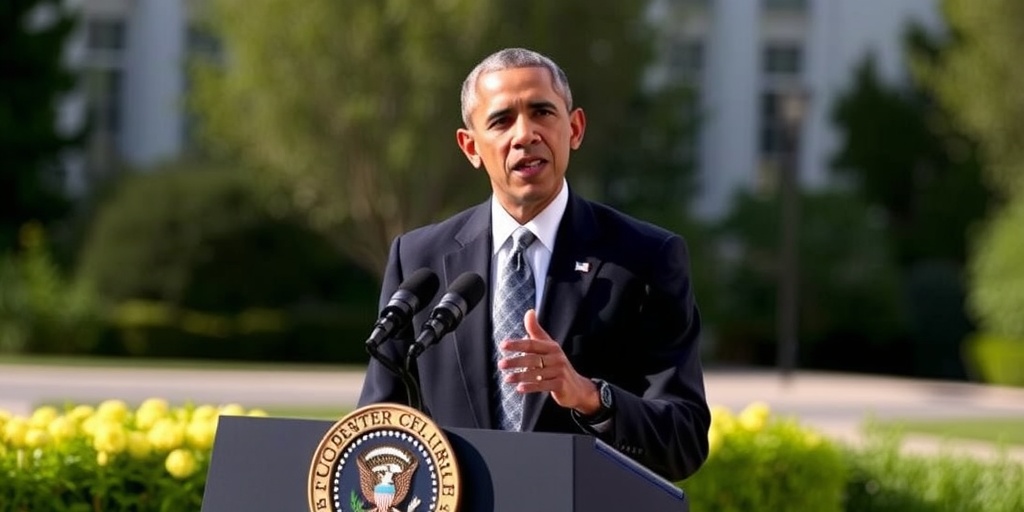Now Reading: New York Refuses to Comply with Trump’s D.E.I. Order for Schools
-
01
New York Refuses to Comply with Trump’s D.E.I. Order for Schools
New York Refuses to Comply with Trump’s D.E.I. Order for Schools

The New York State Education Department took a bold stance against the Trump administration’s recent threats to withdraw federal funding from public schools that maintain diversity, equity, and inclusion (D.E.I.) programs. This response marks a significant shift from the more conciliatory tactics adopted by many other institutions in recent weeks, which have been reluctant to openly challenge federal directives.
On Friday, Daniel Morton-Bentley, the deputy commissioner for legal affairs at the New York State Education Department, addressed federal education officials with a letter that highlights the state’s commitment to upholding D.E.I. initiatives in the face of mounting pressure. In his correspondence, Morton-Bentley accused the current administration of attempting to “censor anything it deems ‘diversity, equity & inclusion.’” He emphasized that both federal and state laws do not prohibit the principles associated with D.E.I., underscoring a lack of clarity from the federal government regarding which specific practices are deemed to violate civil rights protections.
This assertive letter came on the heels of a memo issued by the federal government, which requested that education officials nationwide confirm the discontinuation of programs that the Trump administration believes promote diversity, equity, and inclusion unfairly. The memo suggested that Title I funding—a vital source of financial support for schools with significant populations of low-income students—was at risk if compliance was not demonstrated.
New York’s firm response is particularly notable given the largely muted reactions observed within academia and other major institutions across the country. Many universities have opted for a more cautious approach, discreetly modifying their diversity-related content online or canceling events to adhere to the executive orders from the Trump administration and to avoid potential backlash from the White House. This pattern of behavior has been evident among several prominent universities, including Harvard and Columbia, which have adopted a deferential tone when discussing issues related to diversity, equity, and inclusion under the scrutiny of congressional leaders.
In contrast to this hesitance, K-12 educational leaders, including David C. Banks, then-chancellor of New York City’s public schools, adopted a more combative stance when facing similar pressures. The current wave of assertiveness against the Trump administration’s stance seems to be gaining traction. For instance, Chicago’s mayor, Brandon Johnson, publicly declared on Friday that the city would take legal action against the Trump administration should it attempt to cut funding to local schools. Johnson expressed a no-nonsense attitude, asserting, “We’re not going to be intimidated by these threats,” signaling his administration’s commitment to contest such actions vigorously.
It is essential to note that public school districts operate under a different funding model compared to universities, which often heavily rely on federal grants for research and development. Approximately 90% of funding for public schools derives from state and local taxes, providing them with a buffer against the potential loss of federal funds.
The memo from the Trump administration invoked a broad interpretation of a Supreme Court decision from 2023 that declared race-based affirmative action programs unlawful in higher education contexts. However, this ruling did not extend to K-12 schools, and many stakeholders argue that the application of such a decision to public school programs overreaches legal boundaries.
The New York State Education Department’s letter rejected the characterization of the Supreme Court ruling as a “totemic significance” and insisted that the federal government has the authority to create policy statements but cannot equate these with law. Morton-Bentley also highlighted a concerning shift in the federal government’s stance within the administration. He recalled previous statements made by Betsy DeVos, the Secretary of Education during Trump’s first term, who emphasized that diversity and inclusion were crucial to high organizational performance and team success. Morton-Bentley questioned the abrupt change in policy direction, stating that no justification has been provided by federal officials.
In response to the federal memo, the New York State Education Department indicated it would view the request for certification of compliance as non-mandatory. The state categorically stated, “No further certification will be forthcoming,” signaling a clear rejection of the federal demands.
As the a battle over educational governance and the role of diversity, equity, and inclusion initiatives unfolds, New York’s willingness to assert itself against federal threats could serve as a model for other states and municipalities grappling with similar challenges. With public discourse on these issues intensifying, the coming months may see more jurisdictions taking a stand, as evidenced by Chicago’s readiness to challenge federal actions in court.
Stay Informed With the Latest & Most Important News
Previous Post
Next Post
-
 01New technology breakthrough has everyone talking right now
01New technology breakthrough has everyone talking right now -
 02Unbelievable life hack everyone needs to try today
02Unbelievable life hack everyone needs to try today -
 03Fascinating discovery found buried deep beneath the ocean
03Fascinating discovery found buried deep beneath the ocean -
 04Man invents genius device that solves everyday problems
04Man invents genius device that solves everyday problems -
 05Shocking discovery that changes what we know forever
05Shocking discovery that changes what we know forever -
 06Internet goes wild over celebrity’s unexpected fashion choice
06Internet goes wild over celebrity’s unexpected fashion choice -
 07Rare animal sighting stuns scientists and wildlife lovers
07Rare animal sighting stuns scientists and wildlife lovers





















